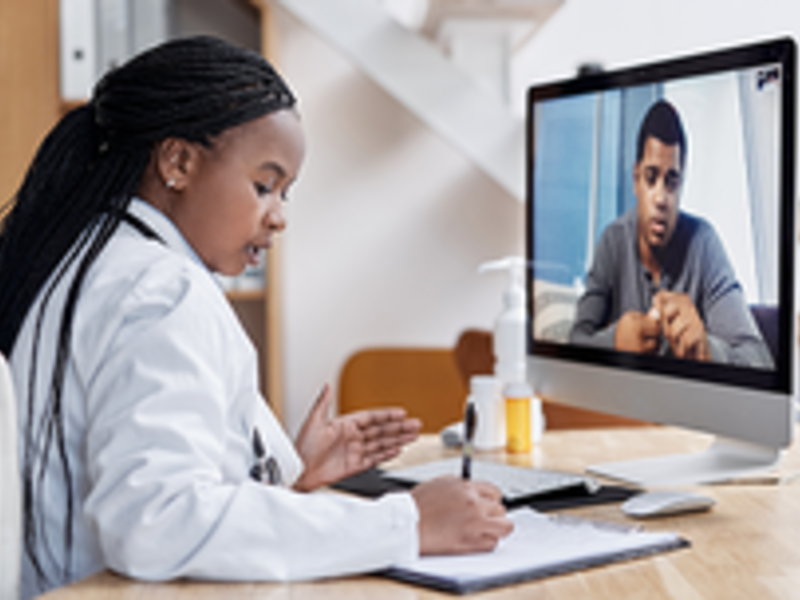
Studies focusing on technological obstacles and virtual clinical experiences as well as the effectiveness and future of telehealth are critical should take place to assess quality of digital health, experts say. A group of researchers working under a coalition that includes Kaiser Permanente, Advocate Aurora Health and Johns Hopkins Medicine are working to inform that research.
The Society to Improve Diagnosis in Medicine has lauched a project that surveys patients, clinicians, hospitals, health systems and telehealth companies to gauge their experiences with telemedicine.
The TeleDx project found that patients and providers need research to inform their decisions on whether care can be managed virtually or if it warrants an in-person visit, said Suz Schrandt, senior patient engagement advisor at SIDM and TeleDx’s principal investigator.
“Every single person we talked to felt that telemedicine absolutely has a place,” Schrandt said. “We just need a little more research to guide how we use it most effectively in diagnosis.”
Annually, 12 million people—about 5% of adults seeking outpatient care—are misdiagnosed, according to a 2015 National Academy of Medicine estimate. With the growth of telehealth during the past year, Schrandt said it is important to look into how diagnostic quality and safety are being impacted by telemedicine.
Through interviews with dozens of healthcare stakeholders, TeleDx researchers identified the most pressing questions to drive studies on how to maximize the potential of telehealth and telediagnosis.
Researchers should prioritize how technology access can exclude some patients, how telemedicine can replicate and improve upon the benefits of in-person visits and how virtual care can provide a mechanism to better track incorrect diagnoses, said Mark Graber, founder and president emeritus of SIDM, in a news release.
Studies should also consider reimbursement for telediagnosis and how legal and regulatory changes may impact telemedicine.
Many patients were grateful they didn’t have to be seen in person during the pandemic, and that telemedicine offered relatively little hassle.
“What was illuminating to hear is how many of them hope that will continue to be the case, long after COVID-19,” Schrandt said. “Particularly for facilitating easier access to care.”
Further research may indicate whether telediagnosis could benefit patients in terms of accessing specialists across the country and discussing stigmatized conditions, she said, among other areas.
SIDM’s work includes participation of hundreds of thousands of healthcare providers and patients, the group said in a press release, with the American Association of Nurse Practitioners, American College of Emergency Physicians, National Quality Forum, ECRI Institute, American Health Quality Association among its professional groups.
Source link : https://www.modernhealthcare.com/safety-quality/kaiser-advocate-aurora-among-group-seeking-telemedicine-quality-research











